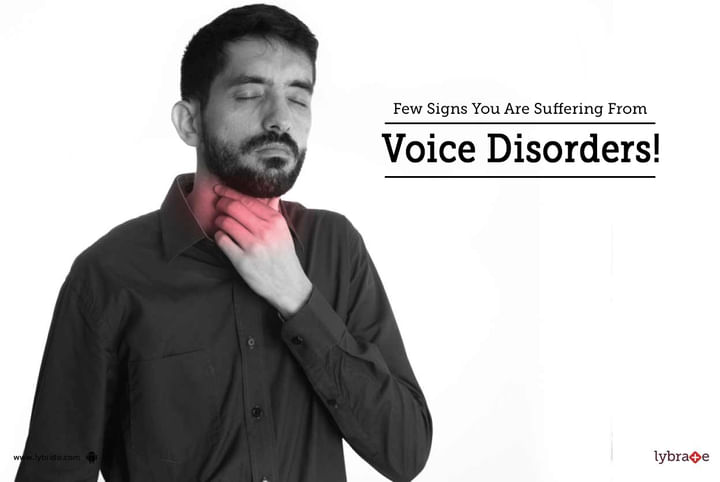Few Signs You Are Suffering From Voice Disorders!
Voice results from the air that comes out of the lungs and passes through the vocal cords. The latter is also known as the voice box. Speech results from the vibration of the chords. Voice disorder might occur for various reasons such as tone, pitch, and volume of the if the voice. The roots of all problems boil down to the malfunctioning of the cords.
Voice disorder examples:
- Laryngitis: Laryngitis results from the swelling of the vocal cords. It can lead to a temporary halt of voice or a voice with hoarseness. It often occurs due to a viral attack in the respiratory tract. It can last from a few days to a few weeks. The treatment suggested for cases like these include resting the voice and intake of a lot of fluids. Some common causes that are responsible for laryngitis are GERD, chronic cough, and asthma.
- Vocal cord paralysis: Paralysis of the vocal cord can be temporary or permanent. The possible cause of this scenario can be from viral infection, cancer, surgical injury to the nerve etc. In the case of a paralysis of the vocal cord, a person might find difficulty in breathing, can result in weak voice etc. While this condition improves for many people with voice therapy and surgery, for some they permanently lose their ability to speak.
- Spasmodic dysphonia: The vocal cord spasm due to a problem with the nerve. This condition can lead to a quivery, hoarse, groaning or jerky voice. In this condition, a person might find it easy to speak at times and have difficulty in speaking later. Botulinum toxin and speech therapy help to improve this condition.
Possible causes of voice disorders:
- Growth: Extra tissue formation on the vocal cords might stop the vocal cords to work properly leading to voice disorders. The growth can be treated with injection, medicine or surgery.
- Swelling and inflammation: Exposure to chemicals, vocal and alcohol abuse, surgery-related complications can lead to inflammation or swelling of the vocal cords resulting in voice-related problems.
- Hormone: Disorder of the male, female and thyroid hormone can lead to voice related disorders affecting speech.
Symptoms of voice disorders:
- The harshness of the voice
- Voice is breathy, weak and whispery
- The voice sounds like choppy or strained
- A quivering sound while speaking
- The voice sounds harsh or rough while speaking
Diagnosis of Voice related disorders:
Voice related disorders can be detected through a process known as Laryngoscopy. This helps a doctor to view the throat region and find out the possible culprit that may be causing the problem. Some other popular methods are stroboscopy, EMG and imaging tests such as MRI and X-Ray of the throat. If you wish to discuss about any specific problem, you can consult a speech-therapist.



+1.svg)
